Did you know pickpockets in Taiwan nowadays are so well-organized that they don't have to worry about serving doing time after being busted by the police? Local TV station SETN (
According to the same TV report, the man behind the scenes is most likely the pickpockets' mentor, the man who trained them and sent them out to the street to ply their trade. His disciples are obliged to give their mentor a certain percentage of their daily take in much the same way as businessmen buy insurance in preparation for a rainy day. And, in accordance with their training, they tend to keep to preassigned routes at familiar locations that attract large crowds, such as popular temples, markets and the entrances of MRT stations
Crowds gathered to watch stars perform on open-air stages on the bustling streets of Hsimenting (
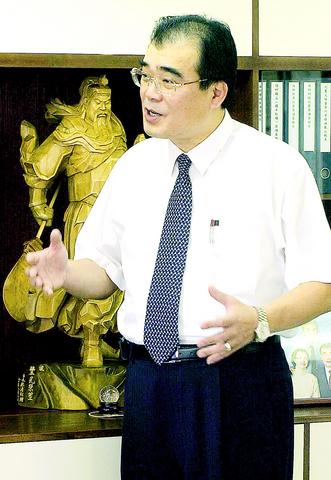
PHOTO: SEAN CHAO, TAIPEI TIMES
Foreign affairs
A report from the Taipei Municipal Police Department (
Much more shocking to the police was the fact that a notebook, which contained the names and addresses of major Taipei department stores and night markets in both Vietnamese and Chinese, was also discovered in one of their bags. Although the Tran Thi sisters refused to disclose the name of their local contact, officers realized that this was their first solid evidence of a new kind of international pickpocket ring that involved the joint efforts of foreign thieves and local organizers.
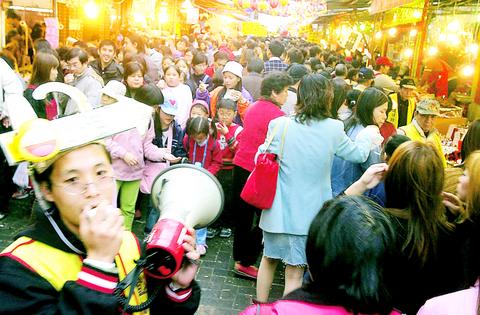
PHOTO: SEAN CHAO, TAIPEI TIMES
As officer Frank Chiu (
A few months latter, another Vietnamese woman named Vu Thi Chun was arrested after she used a sharp knife to cut open a Filipino nurse's handbag at Shihlin night market (
Wen Shyu-fu (
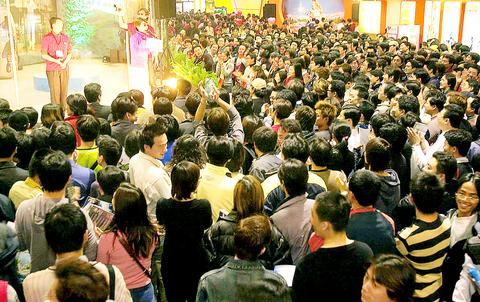
PHOTO: SEAN CHAO, TAIPEI TIMES
Vu, according to Wen, was obviously a rookie and was not well-prepared to notice the presence of police officers in disguise.
Officer Tong Ming-hui (
Still, Vu was smart enough to send all of her cash and jewelry back to Vietnam from Taipei as soon as she was detained at the police station. Apparently, someone else had come to her aid. On the day of her deportation, she even asked the accompanying police officers for taxi money, which she claimed she needed in order to return home safely from the airport in Vietnam.
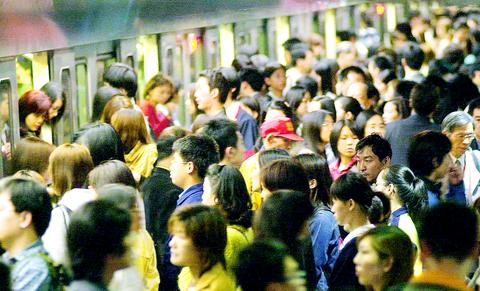
PHOTO: SEAN CHAO, TAIPEI TIMES
Another rare case involved a 65-year-old hardened criminal named Yang Mei-chu (楊美珠). Local police have taken Yang, who is Taiwanese, into custody more than 20 times on suspicion of theft and other criminal offences in the past. She was apprehended again in January after snatching a Malaysian tourist's wallet on Tihua Street during the Lunar New Year period. Stolen goods such as passports, ID cards, drivers' licenses, ATM cards, credit cards and foreign currency such as US dollars, Singapore dollars, Nicaragua cordobas and Malaysian dollars were all found among her belongings.
Targeting temples
In fact, any site with that attracts large crowds also attracts pickpockets. A master at Hsingtien Temple (
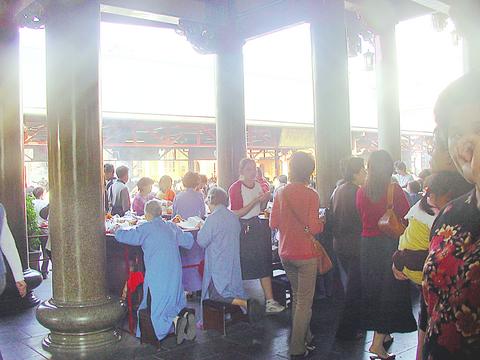
PHOTO: DEREK LEE, TAIPEI TIMES
Purse-snatchers also temples, such as Lungshan Temple (
Officers Wen, Tong and others believe that most of the pickpockets in Taipei operate alone. In contrast, purse-snatchers from outside of Taipei tend to work in teams of three to four, each one assigned a different role in operations which often involve elaborate ruses used to distract potential victims.
In one such ruse, one team member shouts loudly at a crying child in a large store such as Carrefour or RT-Mart to attract the attention of a crowd with wallets full of cash.
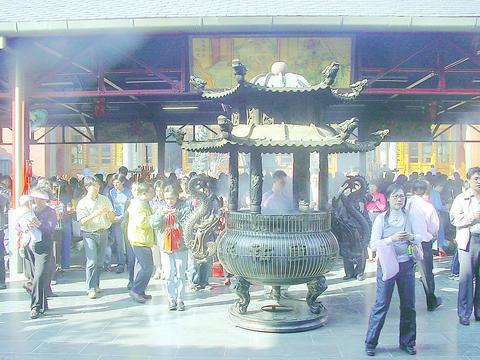
PHOTO: DEREK LEE, TAIPEI TIMES
Similarly, if you try to get on a bus and are blocked by a person who all of a sudden cuts into line in front of you to speak to the bus driver, don't get upset just yet. Your first move should be to reach for your wallet and hold on to it. Otherwise, it may end up in someone else's hands seconds and be gone without a trace.

April 14 to April 20 In March 1947, Sising Katadrepan urged the government to drop the “high mountain people” (高山族) designation for Indigenous Taiwanese and refer to them as “Taiwan people” (台灣族). He considered the term derogatory, arguing that it made them sound like animals. The Taiwan Provincial Government agreed to stop using the term, stating that Indigenous Taiwanese suffered all sorts of discrimination and oppression under the Japanese and were forced to live in the mountains as outsiders to society. Now, under the new regime, they would be seen as equals, thus they should be henceforth

Last week, the the National Immigration Agency (NIA) told the legislature that more than 10,000 naturalized Taiwanese citizens from the People’s Republic of China (PRC) risked having their citizenship revoked if they failed to provide proof that they had renounced their Chinese household registration within the next three months. Renunciation is required under the Act Governing Relations Between the People of the Taiwan Area and the Mainland Area (臺灣地區與大陸地區人民關係條例), as amended in 2004, though it was only a legal requirement after 2000. Prior to that, it had been only an administrative requirement since the Nationality Act (國籍法) was established in

Three big changes have transformed the landscape of Taiwan’s local patronage factions: Increasing Democratic Progressive Party (DPP) involvement, rising new factions and the Chinese Nationalist Party’s (KMT) significantly weakened control. GREEN FACTIONS It is said that “south of the Zhuoshui River (濁水溪), there is no blue-green divide,” meaning that from Yunlin County south there is no difference between KMT and DPP politicians. This is not always true, but there is more than a grain of truth to it. Traditionally, DPP factions are viewed as national entities, with their primary function to secure plum positions in the party and government. This is not unusual

US President Donald Trump’s bid to take back control of the Panama Canal has put his counterpart Jose Raul Mulino in a difficult position and revived fears in the Central American country that US military bases will return. After Trump vowed to reclaim the interoceanic waterway from Chinese influence, US Defense Secretary Pete Hegseth signed an agreement with the Mulino administration last week for the US to deploy troops in areas adjacent to the canal. For more than two decades, after handing over control of the strategically vital waterway to Panama in 1999 and dismantling the bases that protected it, Washington has